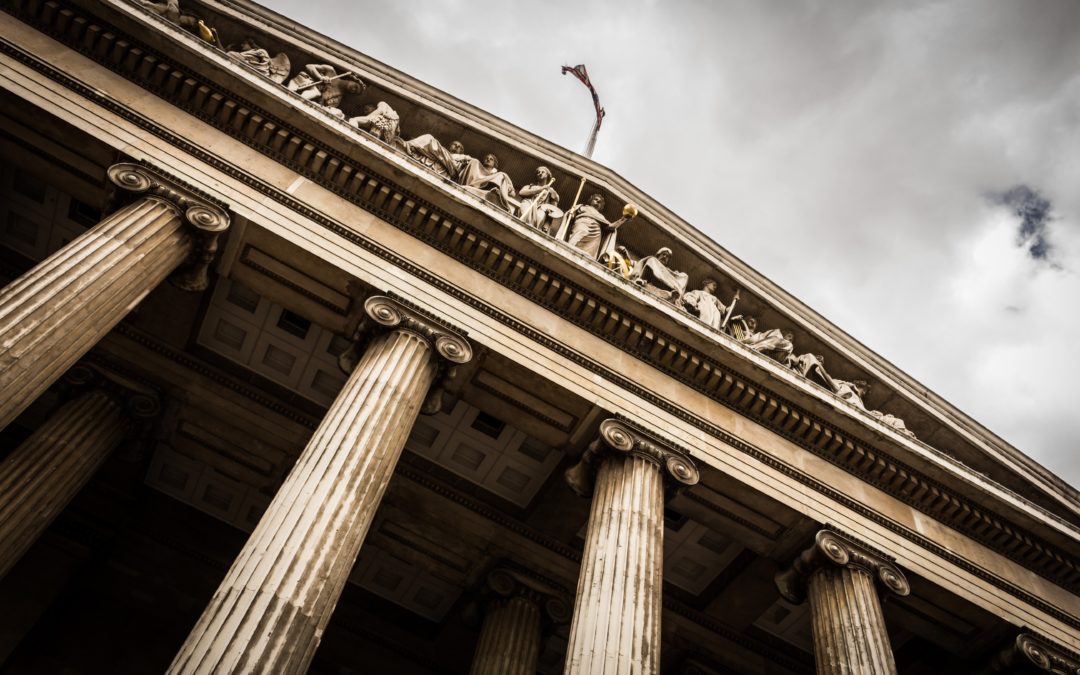
by Jonathan P-Wright | Dec 13, 2023 | Latest, Social Justice, Uncategorized |
An iconic figure in the world of hip-hop, Hurricane Chris, has had his share of tumultuous times recently. This article dives into the rapper’s journey from the courtroom to his ongoing fight for social justice.
The Dawn of the Storm
In March, the rapper, best known for his hit “A Bay Bay,” was acquitted of a 2020 shooting incident that resulted in the tragic demise of a 32-year-old man, Danzeria O. Farris. He expressed his sentiments openly about the incident in a detailed interview with TMZ.
“My goal is to spread the message of empathy for everyone involved in the situation as widely as possible,” he expressed.
A Nod to Respect
Hurricane Chris has always emphasized the importance of maintaining respect, regardless of the circumstances. He stressed this during his recent interview.
“No matter what transpires, you always want to uphold respect wherever it’s feasible. I’m from Louisiana; it’s a small place. It’s not California or Chicago. If you’re reckless with your words, you’re likely to face repercussions.”
The Road to Justice
Following his acquittal, Hurricane Chris has been vocal about his dissatisfaction with law enforcement’s handling of his case. The Shreveport police department’s conduct during the investigation has raised several questions. He detailed his grievances, stating how the police’s lack of thorough investigation had cost him.
The Lawsuit
Allegedly, the police failed to conduct a proper investigation into Hurricane Chris’s case. The rapper plans to sue the Shreveport PD for their misconduct. He claims that their negligence led to his loss of over $1.4 million, along with a promising movie deal and a contract with a top acting agency in Louisiana.
Conclusion: A Pursuit of Social Justice
Despite the challenges faced, Hurricane Chris continues to use his platform to advocate for social justice. His journey serves as a stark reminder of the issues plaguing our justice system and the importance of accountability.

by Laghe Andrews | Sep 29, 2023 | Latest, Social Justice |
Photo by Sebastian Pichler on Unsplash
A Louisiana judge has recently made a groundbreaking decision in the realm of juvenile justice, ordering the transfer of young inmates from a maximum-security facility to a more suitable environment. This action resonates as a significant stride towards social justice, particularly for those who have been advocating for the rights of incarcerated minors.
The Backdrop of the Decision
The Louisiana State Penitentiary, colloquially known as Angola, has been housing youth inmates under inhumane conditions. The penitentiary, infamous for its maximum-security status, has been the subject of numerous lawsuits and protests against its treatment of minors.
“The conditions at Angola were more than just harsh – they were downright cruel and unusual.” – Advocate for Juvenile Justice
Federal Judge Shelly Dick, the Louisiana judge in question, ruled in favor of a civil lawsuit brought against the state by advocates and family members of the incarcerated minors. On a momentous day in September, she ordered state officials to execute the transfer of these young inmates.
Parental and Advocacy Outcry
Parents and advocates have long argued against the placement of minors in Angola. The prison, which operated as a slave plantation in the past, is known for its sweltering heat and harsh conditions. They argued that it was inappropriate for minors to be housed in such an environment.
Angola: A Glimpse into its History
Angola, once a slave plantation, was converted into a prison during the Civil War before becoming a death row facility for adults. The prison is recognized as the largest maximum-security facility in the country, with the capacity to house over 5000 offenders.
The American Civil Liberties Union (ACLU) of Louisiana has been active in this fight for justice. David Utter, the lead counsel on the case, issued a statement voicing the demand for investment in children, not punishment. He called upon Louisiana’s leaders to address the systemic failures in the state’s juvenile justice system.
The Deadline for Justice
The state has been given a deadline until the middle of September to rehouse the youth. This decision is a significant step toward ensuring that all children — Black, Brown, and white — have equal access to opportunity and justice.
The Louisiana judge’s ruling serves as a beacon of hope for youth inmates and a victory for social justice advocates. As the story unfolds, it remains to be seen how the state responds and what further steps will be taken to protect the rights of incarcerated minors.

by Minnee | Sep 13, 2023 | Latest, POLITICS |
Image Credit: Photo by Tingey Injury Law Firm on Unsplash
Georgia’s Fulton County District Attorney, FANI WILLIS, is an unswerving advocate for justice. Her recent encounter with U.S. Rep. Jim Jordan (R-OH) demonstrates her steadfast dedication to her role, refusing to kowtow to political pressure or partisan agendas.
Willis vs. Jordan: A Clash of Convictions
Willis has taken the spotlight, following her bold response to Rep. Jim Jordan’s inquiry regarding Donald Trump’s election case. Jordan, a staunch Trump ally and Republican chair of the House Judiciary Committee, expressed reservations over her investigation into Trump and his associates’ attempts to overturn the 2020 elections. Jordan demanded documentation by September 7, but Willis countered with a comprehensive rebuttal, addressing the inaccuracies and misleading statements in his letter.
Willis’s Rebuttal
“Its obvious purpose is to obstruct a Georgia criminal proceeding and to advance outrageous partisan misrepresentations,” Willis wrote. “As I make clear below, there is no justification in the Constitution for Congress to interfere with a state criminal matter, as you attempt to do.”
Accusations of Constitutional Violation
Willis accused Jordan of violating the U.S. Constitution, alleging that he was trying to interfere with her office’s prosecution and obstruct justice. She stated that his inquiry infringes upon state sovereignty over state law matters.
“Your public statements and your letter itself make clear that you lack any legitimate legislative purpose for that inquiry: your job description as a legislator does not include criminal law enforcement, nor does it include supervising a specific criminal trial because you believe that doing so will promote your partisan political objectives,” Willis stated.
Backlash and Threats: The Price of Pursuing Justice
The investigation led by Willis has not been met without resistance. Trump and his allies have targeted her, accusing her of politically motivated persecution. They have called for punitive measures against her, including impeachment.
Local Legislators’ Opposition
Even legislators from her own state, such as Sen. Colton Moore, threatened to convene a special session to defund Willis’ office and called for her impeachment. Yet, Georgia’s Gov. Brian Kemp defended Willis, denouncing Moore’s attempts to raise money from Trump supporters as a “grifter scam.”
Undeterred Pursuit of Justice
Despite the threats and accusations, Willis and her team have remained undeterred. In August, Trump was hit with felony racketeering and conspiracy counts in a 41-count indictment, naming 19 defendants, according to NBC News.
In response to Rep. Jordan’s probe, Willis affirmed her commitment to upholding the law.
If people want to avoid felony charges in Fulton County, including violating state racketeering and RICO laws, then they shouldn’t commit those felonies,” Willis stated.
Conclusion
GEORGIA DA FANI WILLIS embodies the spirit of justice, refusing to bow down to political pressure or partisan interests. Her steadfast resolve to uphold the law and pursue justice, regardless of the opposition, makes her a beacon of integrity in today’s often murky political landscape.

by Jonathan P-Wright | Aug 31, 2023 | Latest, Social Justice |
A bakery in San Francisco, known for its delightful street food, is making headlines. But not for its scrumptious pastries or mouth-watering cakes. The bakery, Reem’s California, has stirred up a storm with its unique policy: a refusal to serve police officers.
The Tweet that Sparked Controversy
A tweet from the San Francisco Police Officers Association (SPOA) spokesperson relayed the surprising incident. An officer in uniform was denied service at Reem’s. The tweet blasted out the bakery’s policy, “NO COPS ALLOWED.”
“NO COPS ALLOWED. That’s the confirmed policy of the bakery chain Reem’s. One of our officers was denied service last weekend because he was in uniform. Reem’s confirms that they will not serve anyone armed and in uniform. Presumably, this includes members of the U.S. Military.”
Reem’s California: The Stand for Social and Racial Justice
Reem’s is not just any ordinary bakery. It’s a local Arab company deeply committed to uplifting social and racial justice. In a statement to the San Francisco Gate, a spokesperson from Reem’s elucidated the company’s stand.
“This includes fostering an environment of safety for our staff and customers,” it continued. “In a time of increased gun violence — particularly impacting people of color, youth, and queer people — we believe that maintaining a strict policy of prohibiting guns in our restaurant keeps us safer.”
The policy, as per the company’s perspective, is a tool to protect its community from the escalating gun violence.
The Impact of Gun Violence
The San Francisco based company added that many in their community have been direct or indirect victims of gun violence. Whether it’s the streets of San Francisco or Oakland or the broader repercussions of war and political extremism, the impact is palpable.
The victims are often marginalized people – the black and brown population, the poor, and the vulnerable. At Reem’s, the aim is to create a safe and welcoming space. A place where the community can savor delicious Arab food and work together to strengthen their bonds.
A Call to the Community
Reem’s invites its community to join them in fostering a culture of care and resilience. It’s a call to step up, to stand together, and to build a community free from fear of violence or harassment.
SPOA Response
The SPOA, on the other hand, has requested Reem’s and any other business with similar policies to display their stance openly. This way, the officers would know where not to spend their money, on or off duty.
The Deeper Implications
This incident throws light on the broader issues of social justice and racial justice that persist in our society. It’s a reflection of the deep-seated prejudices, fears, and divisions that continue to plague us.
But above all, it’s a call to action. It’s a reminder that every individual, every business, and every institution has a role to play in shaping a just and equitable society.
Final Thoughts
In the heart of San Francisco, a bakery is making a stand. It’s not about pastries or cakes, but about social and racial justice. It’s about creating an environment of safety and acceptance. It’s about standing up against gun violence. It’s about fostering a culture of care and resilience.
Perhaps it’s time we all take a moment to reflect on what we can do to contribute to this change. Because, in the end, every action counts.

by Derrick T Lewis | Aug 28, 2023 | Latest, Social Justice |
More than half a century ago, the landscape of education in the United States was transformed by an audacious group known as the Little Rock Nine. These nine brave African American students challenged the status quo by integrating the racially segregated Little Rock Central High School in Arkansas. Today, their legacy continues as they stand up for the rights of students to learn comprehensive African American history.
The Legacy of the Little Rock Nine
In 1957, the courageous act of the Little Rock Nine not only disrupted segregation but also paved the way for the integration of academic settings across the country. Even in the face of adversity and discrimination, they persevered to receive the education they deserved. Their actions sparked a nationwide movement that eventually led to the desegregation of all public schools in the United States.
The Current Education Climate in Arkansas
Fast forward to the present day, the surviving members of the Little Rock Nine continue to advocate for education and social justice. However, their fight has taken on a new form. The current focus is on the state’s legislative efforts that potentially discourage students from enrolling in Advanced Placement (AP) African American Studies.
AP African American Studies under Threat
Recently, the Arkansas Department of Education made a controversial announcement that could disrupt the study of African American history in schools. They declared that students might not earn the required credit for graduation from the AP African American Studies course. Moreover, the department stated that they did not plan to cover the $100 end-of-course exam fee.
The LEARNS Act and its Implications
This shocking decision is largely attributed to Governor Sarah Huckabee Sanders’ LEARNS Act. This legislation aims to “sanitize” the curriculum of critical race theory and other teachings perceived as discriminatory based on race, ethnicity, sex, and other categories. It raises the question of whether the government is attempting to censor history and limit the education of future generations.
The Arkansas Department of Education defended their position, stating that they encourage the teaching of all American history and support rigorous courses not based on opinions or indoctrination. But the surviving members of the Little Rock Nine see the decision as an attempt to erase history.
The Voices of the Little Rock Nine
Elizabeth Eckford, one of the original nine who integrated Central High, expressed her concern over this decision. She stated that this move seemed to be serving the interests of the Republican Party, as it resonated with their supporters. Her fellow member, Terrence Roberts, echoed her sentiments, questioning whether these voices of dissent would indeed be successful in pushing back against the decision.
The Reaction from the NAACP
The state chapter of the National Association for the Advancement of Colored People (NAACP) didn’t hold back in expressing their disapproval. They criticized the decision as an attack on civil rights and the progress of students of color in Arkansas. They stated that dismissing AP African American Studies is not only a failure to provide equitable education but also shows a clear disdain for the experiences that form part of our history.
The Power of Solidarity
Despite the discouraging circumstances, there’s a silver lining. According to the Arkansas Times, at least six schools in the Little Rock School District have committed to continue offering the college-level course. This act of solidarity shows that the spirit of the Little Rock Nine lives on, inspiring educators and students to stand up for African American Studies and social justice.
The Fight Continues
The surviving members of the Little Rock Nine, along with their supporters, will continue to fight for the inclusion of comprehensive African American history in the curriculum. They understand that African American history is not separate from American history. It is a vital part of the country’s narrative and should be taught as such.
The battle for educational equity and social justice is far from over. The Little Rock Nine have shown us that change is possible, and it’s up to us to continue their legacy and stand up for what’s right.
Conclusion
From the integration of Little Rock Central High School in 1957 to advocating for AP African American Studies in Arkansas today, the Little Rock Nine remain stalwarts in the fight for educational equity. Their legacy serves as a reminder that education should encompass all aspects of history, including those that some may find uncomfortable. As we look to the future, let’s remember the courage of the Little Rock Nine and continue the fight for comprehensive and inclusive education.








RECENT COMMENTS